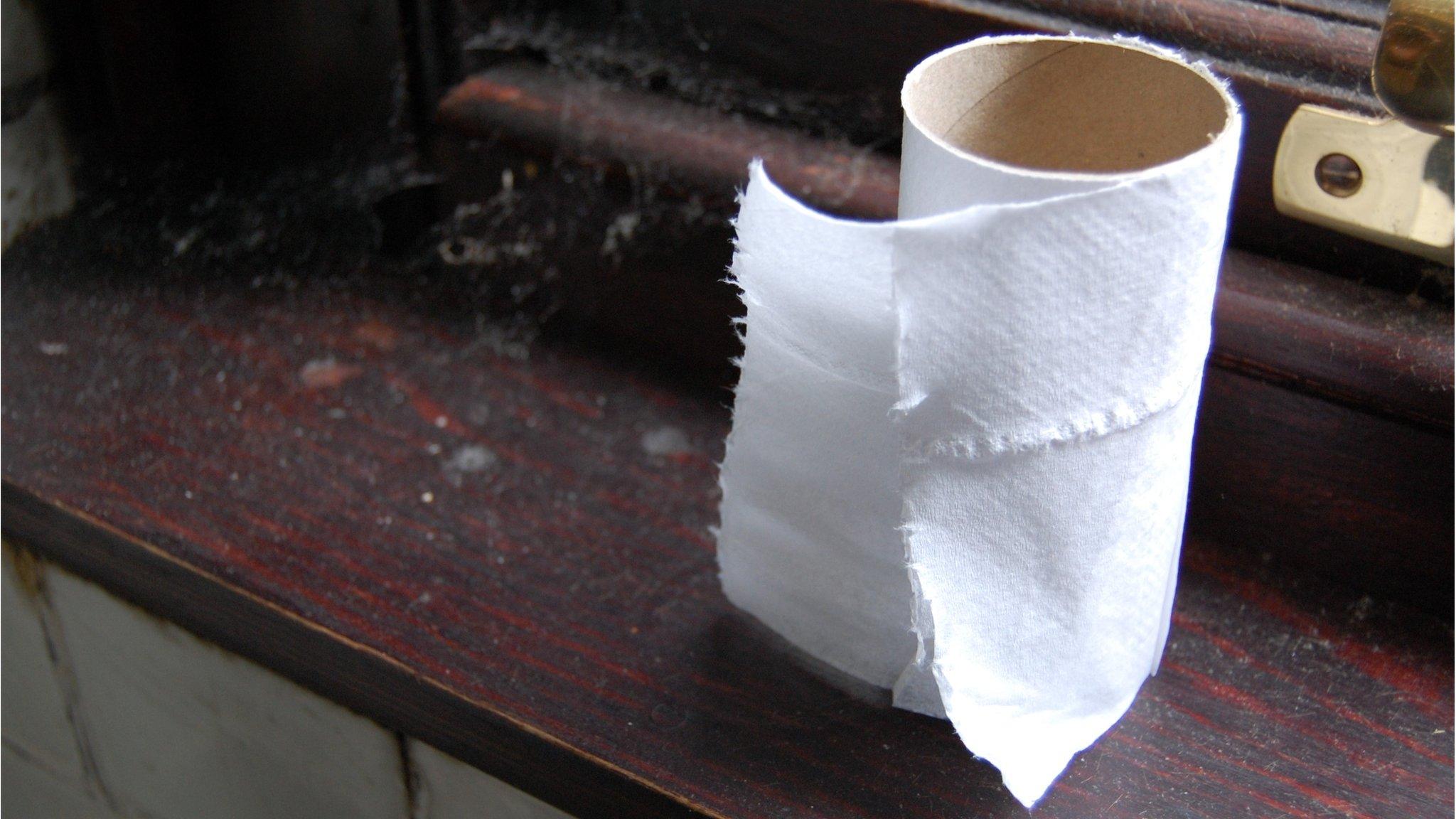Parent school donations 'exacerbating inequality'
- Published
- comments
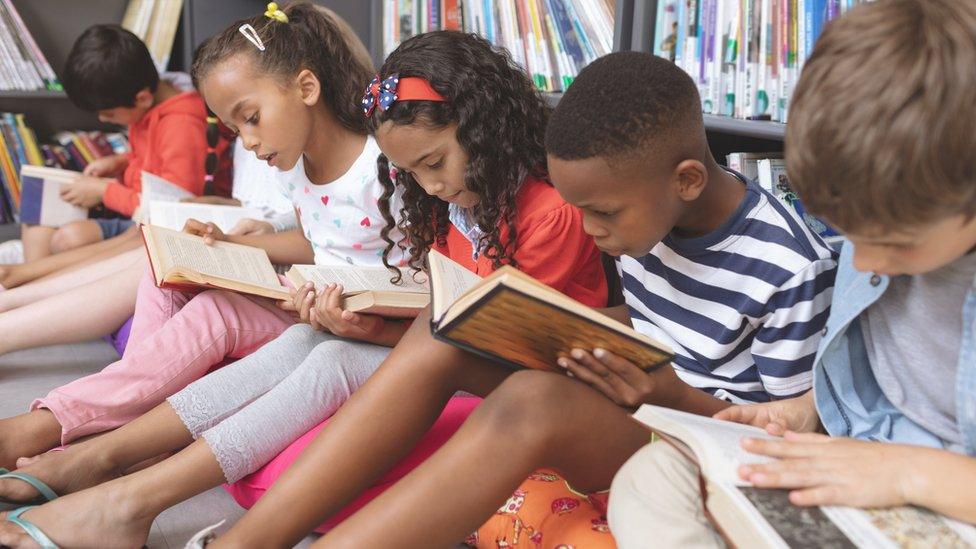
Some schools say they need donations for "necessities", such as books
Pupils in some of the poorest regions of England are losing out because parents cannot afford to fill a funding shortfall with donations, BBC News has found.
In 2017-18, the average school in London raised £43,000 from donations. In Yorkshire, it was just £13,300.
The Fair Education Alliance said this gap "exacerbates unfairness between rich and poor".
The main political parties have all pledged to improve school funding.
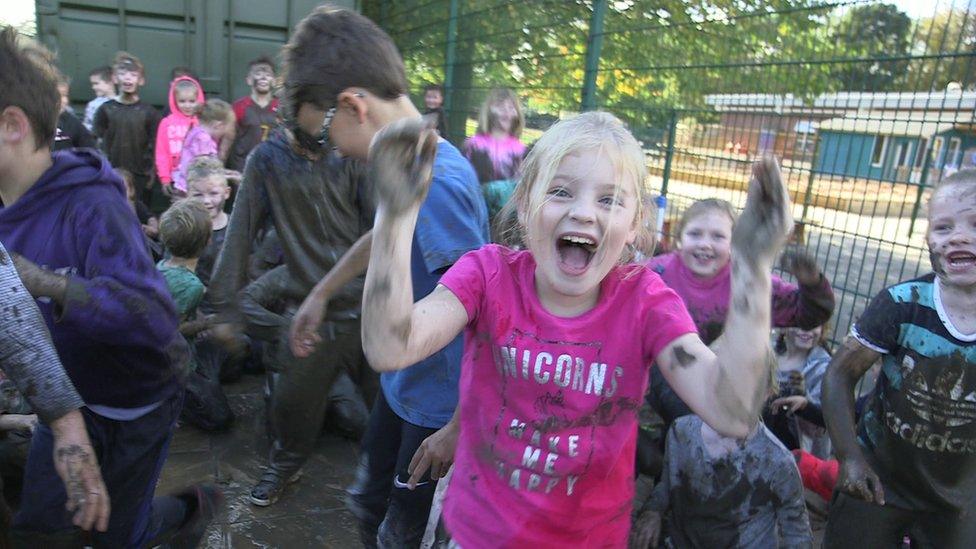
Money is often brought in through fundraising events, such as this mud run
The BBC's Victoria Derbyshire programme's analysis of Department for Education data shows the average school in England generated £59 per pupil from donations in 2017-18 - 1.07% of its overall budget.
The money is often raised through events, such as fun runs and school fairs.
But there is a clear divide across the UK.
While schools in London, the east of England (£24,585 per year) and the North West (£20,844) are the most likely to profit; those in Yorkshire (£13,288), the North East (£13,394) and East Midlands (£17,044) struggle.
Individual schools also fare very differently.
One school in Sunderland gained just £679 from donations, the equivalent of 43p per pupil, in 2017-18.

One city's disparity
At Westmoor Primary School - just outside Newcastle - fewer than 6% of pupils are eligible for free school meals.
There, a recent muddy fun run raised £4,500 for pupils. While such events last year brought in £16,000 - or £45 per child.
The money, head teacher Sharon Trundley says, will go towards "necessities", such as books.
The school also has a set of iPads, "which we wouldn't have been able to buy outright [otherwise]", she adds.
Its donations are below the national average but above par for the North East.
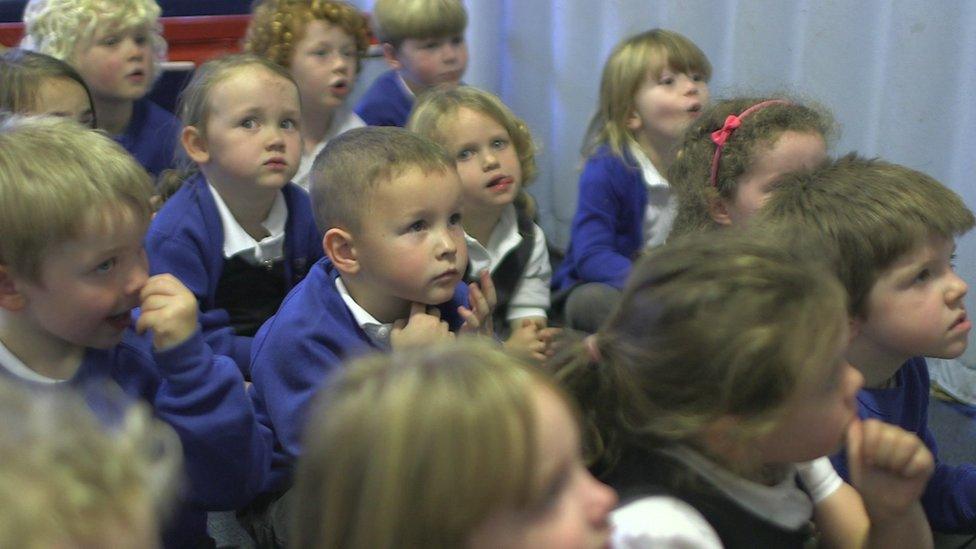
In the north east, school donations are below the national average
Some schools, like Hawthorn Primary, fare much worse.
Based in Newcastle's city centre, nearly 50% of its pupils have free school meals.
Last year its donations brought in just £1,200 - less than £5.50 per pupil.
Head teacher Jane Dube says it is struggling with failing equipment such as outdated laptops.
"The parents we work with, the little they do have they need for their families and their homes," she said.
"They are incredibly generous with the school but we can't always expect that to happen."
It has just formed a parent teacher association to try to look for ways to bring in funding.

Sam Butters, head of the Fair Education Alliance - a coalition of 150 organisations aimed at tackling perceived inequalities in the school system - said: "The fact that parents in wealthier areas can afford to fill some of this funding gap exacerbates unfairness between rich and poor.
"We know that schools in all areas are cash-strapped as funding has decreased in real terms during the period of austerity, so it is not surprising that they are making efforts to seek funds from alternative sources.
"Teachers and school leaders are increasingly reporting a lack of funding for necessities - including, for example, teaching assistants to support in classrooms.
"If insufficient school funding requires donations from parents to meet shortfalls, schools in deprived areas are going to lose out."
Analysis by the Institute for Fiscal Studies (IFS) in June found since 2009, spending had fallen by 8% per pupil once rising costs such as pay and pension contributions were taken into account.
One head teacher in in south London told BBC News in March she had had to scrub the toilets, clean the school and work in the canteen because of funding shortages.

Education spending: Where do parties stand
All five main parties in England have made pledges on education. Here are some of their key policies:
The Conservatives have promised £7.1bn a year more for schools in England by 2022-23
Labour have pledged to provide free school meals to all primary school children and reduce class sizes to under 30 across all schools in England
The Liberal Democrats have said they will recruit 20,000 more teachers and increase schools funding by £10.6bn a year by 2024-25
The Greens have outlined plans to increase school funding by at least £4bn a year
The Brexit Party has said it will ensure all young people have the choice between a high-quality apprenticeship, setting up their own business or pursuing further or higher education
Compare the party manifestos here.


Follow the BBC's Victoria Derbyshire programme on Facebook, external and Twitter, external - and see more of our stories here.
- Published22 March 2017
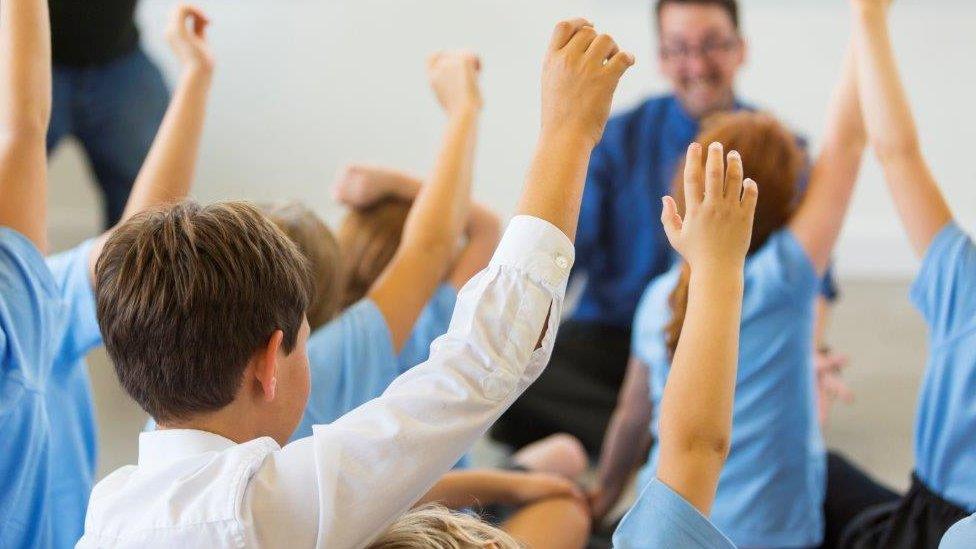
- Published11 January 2019
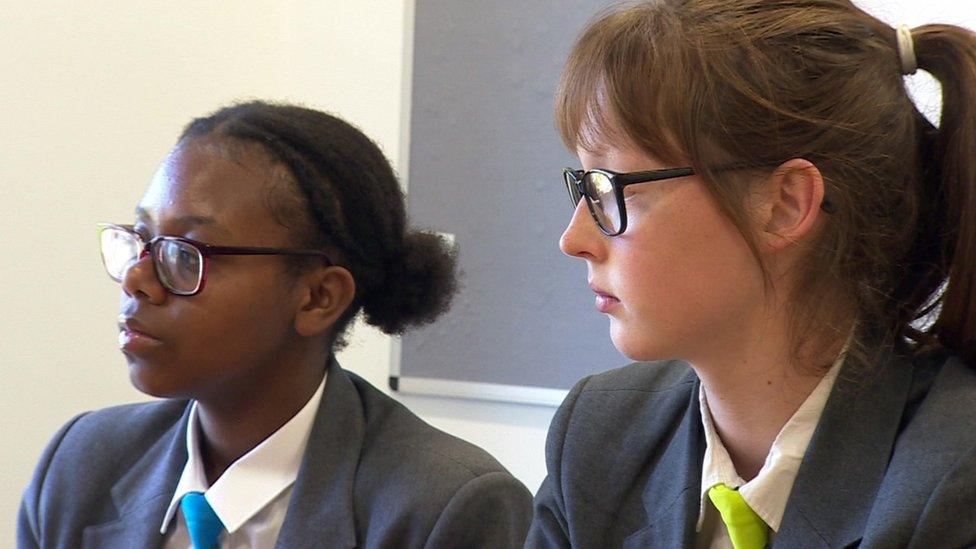
- Published15 June 2018
